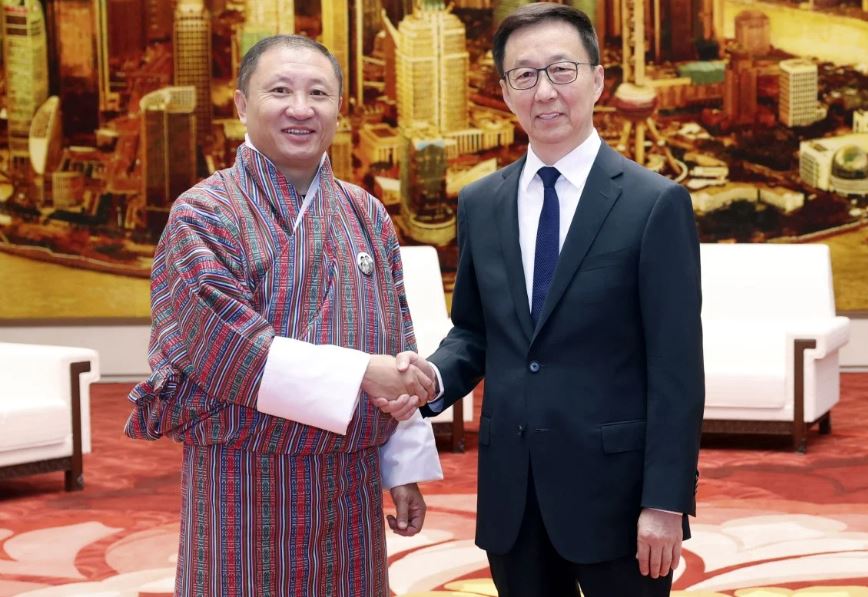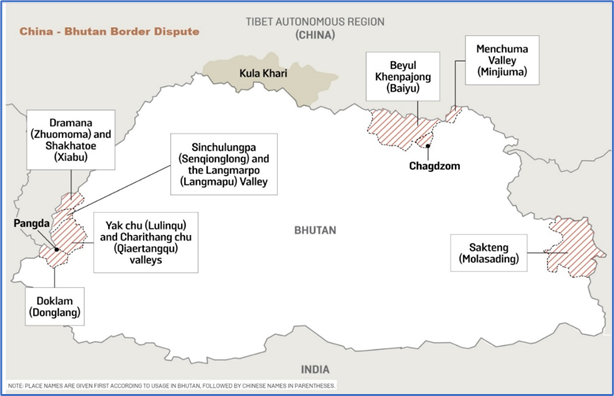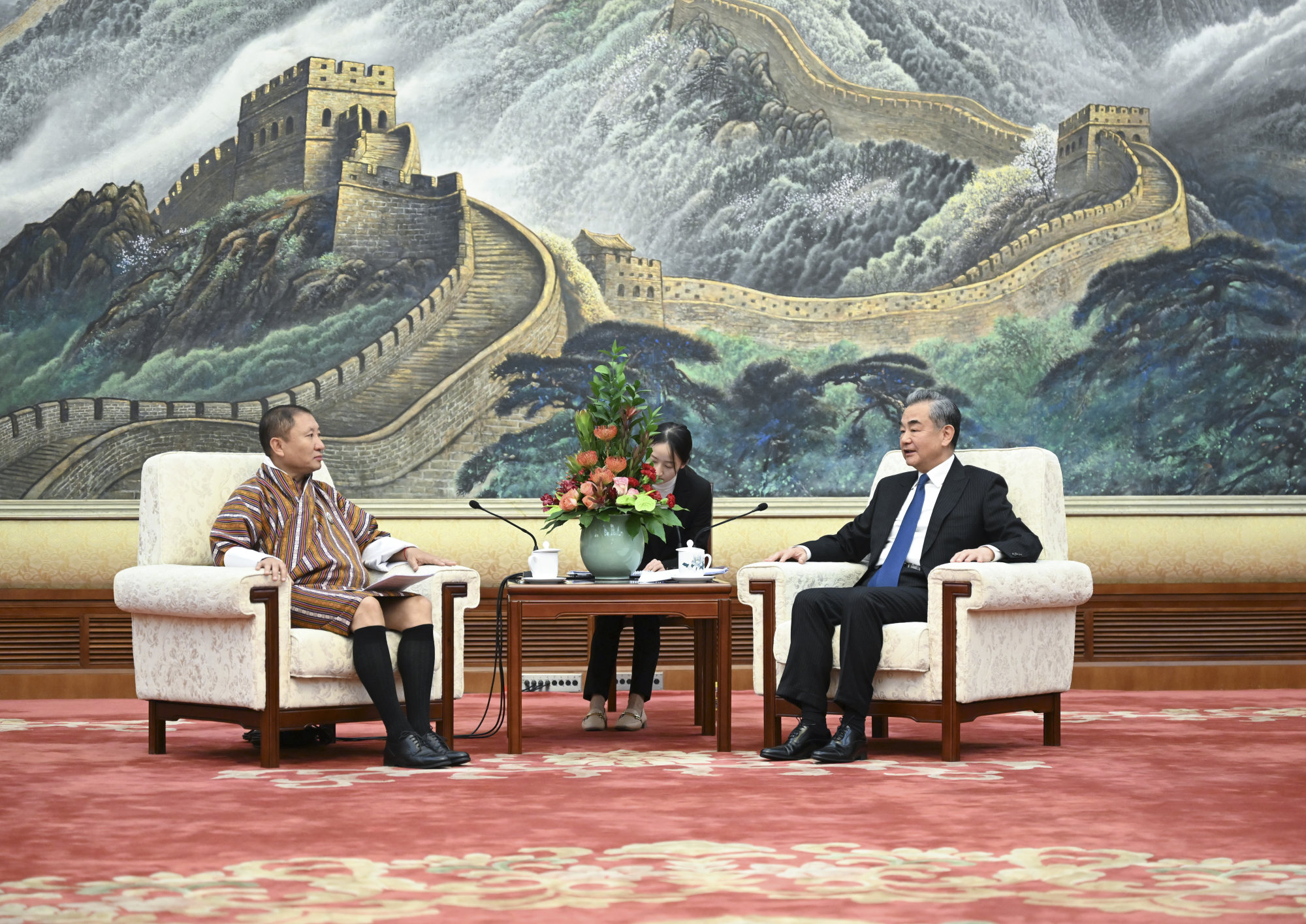The recent Bhutan-China border agreement has been met with alarm in India, with many experts warning that it could have a negative impact on India’s security interests, particularly in the Siliguri Corridor and Arunachal Pradesh.
Past Relations between India and Bhutan
India and Bhutan have traditionally enjoyed close relations, with India providing Bhutan with significant economic and military assistance. India has also been a major source of investment for Bhutan, and the two countries have close cultural ties.
However, relations between the two countries have deteriorated under the Modi government, with India becoming increasingly assertive and intrusive in Bhutan’s internal affairs. For example, India has been pressuring Bhutan to grant citizenship to Lhotshampas, a group of ethnic Nepalis who were expelled from Bhutan in the 1990s. India has also been building roads and infrastructure in Bhutan without the consent of the Bhutanese government.
Relations between Bhutan and China
Bhutan and China have had a troubled relationship in the past. The two countries have been engaged in a border dispute since the 1950s, and China has repeatedly violated Bhutan’s sovereignty. For example, in 2017, China built a road in the Doklam region, which is claimed by both Bhutan and China. This led to a standoff between Chinese and Indian troops, which was eventually resolved through diplomatic channels.
The inaugural visit of Bhutan’s top diplomat to Beijing last week has placed the small Himalayan kingdom in an uneasy spotlight as its neighbouring countries compete for influence. Bhutan, which is wedged between China and India and is known for its special relationship with New Delhi, stands as the sole Asian nation that lacks formal diplomatic ties with Beijing. It is also one of the two nations, along with India, that have unresolved land border disputes with China.

At the core of border negotiations between Beijing and Thimphu, which commenced in 1984, lies the contested tri-junction on the Doklam plateau involving China, Bhutan, and India. This region witnessed a tense 73-day standoff between Chinese and Indian troops in 2017. Reports suggest that progress has been made in negotiations regarding the border dispute and diplomatic relations during the visit of Bhutan’s Foreign Minister Tandi Dorji to Beijing. This development underscores the warming relationship between China and one of India’s closest allies, as observed by experts.
Strategic Importance of Doklam, Menchuma Valley, and Sakteng
Doklam, Menchuma Valley, and Sakteng are three strategically important areas that are located near the border between Bhutan and China.
Doklam: Doklam is a plateau that is located at the trijunction of India, Bhutan, and China. It is strategically important because it overlooks the Siliguri Corridor, which is a narrow strip of land that connects India’s northeastern states to the rest of the country. If China were to gain control of Doklam, it would be able to choke off India’s access to its northeastern states.
Menchuma Valley: The Menchuma Valley is a valley that is located in the Tawang district of Arunachal Pradesh. It is a major source of water for the Tawang River, which is a major tributary of the Brahmaputra River. If China were to gain control of the Menchuma Valley, it would be able to control the flow of water to Tawang and other parts of Arunachal Pradesh.
Sakteng: Sakteng is a wildlife sanctuary that is located in the eastern part of Bhutan. It is home to several endangered species, including the Royal Bengal tiger and the snow leopard. If China were to gain control of Sakteng, it would be able to establish a military presence in the area and threaten India’s security.
Implications of the Bhutan-China Border Agreement
The Bhutan-China border agreement has several implications for India.

Siliguri Corridor: If China were to gain control of territory in Bhutan that is close to the Siliguri Corridor, it would pose a serious threat to India’s security. China could choke off India’s access to its northeastern states and launch a military attack on India from multiple directions.
Arunachal Pradesh: If China were to gain control of territory in Bhutan that is close to Arunachal Pradesh, it would make it easier for China to launch an attack on the state. China could also use its influence in Bhutan to pressure India to withdraw its troops from Arunachal Pradesh.
Buffer state: Bhutan has traditionally served as a buffer state between India and China. However, if China were to gain more influence in Bhutan, it would reduce India’s strategic depth and make it more vulnerable to Chinese aggression.
Diplomatic Failure of the Modi Government
The Bhutan-China border agreement is a major diplomatic failure for the Modi government. It shows that the government has failed to maintain India’s close ties with Bhutan and to prevent China from gaining a strategic advantage in the region. It has the potential to alter the balance of power in the region. It is important for India to carefully consider the implications of the agreement and to take steps to mitigate the risks to its security interests.
The Modi government’s failure to manage India’s relations with Bhutan is particularly concerning in light of the fact that China has been increasingly assertive in the region in recent years. China has been building up its military presence on the border with India, and it has also been trying to expand its influence in other countries in the region, such as Nepal and Sri Lanka.


